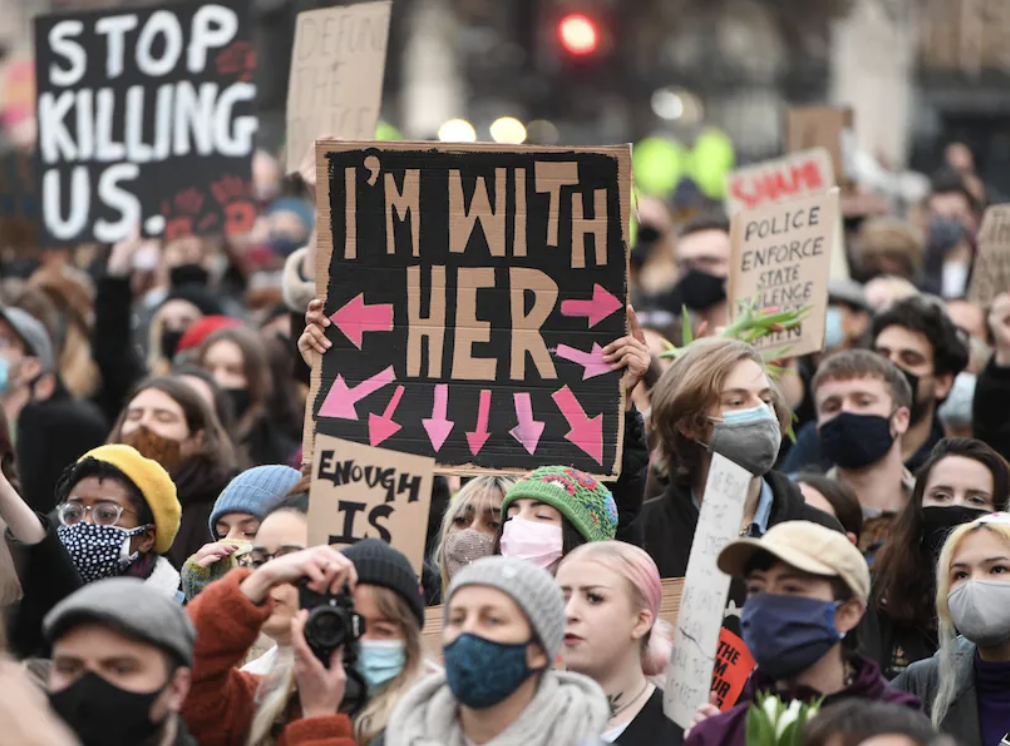By Madihah Najeeb, BA Global Liberal Arts
Content warning: sexual violence, sexual harassment and assault
Ministers have rejected calls for misogyny to be made into a hate crime in England and Wales, claiming that it would be ‘more harmful than helpful’ to women and girls who are victims of violence.
The offence had been added to the Police, Crime, Sentencing and Courts Bill by the House of Lords, but ministers have voted to reject this decision once the bill was raised to the House of Commons.
Home Secretary Priti Patel wrote to MPs to ensure the Government rejected the inclusion of misogyny as a hate crime under the new bill.
“The Home Secretary has said that making misogyny a hate crime will be ‘tokenistic’ as it will cause more serious offences against women and young girls to be missed.”
She also asked MPs to support this new legislation which must be fully backed by both Houses for it to become a law. The Home Secretary has said that making misogyny a hate crime will be ‘tokenistic’ as it will cause more serious offences against women and young girls to be missed.
It is argued that that including misogyny as a hate crime would make it harder to prosecute more serious sexual offenses and domestic abuse cases. A report from the Law Commission supported this point.
Prosecutors would have to find proof that the hate crime occurred as part of another offense such as rape. The same report further argued that making misogyny a hate crime would create ‘hierarchies of victims.’
With this Bill, the Government has also included having mandatory life sentences for people convicted of the unlawful manslaughter of emergency workers, extending the time limit for prosecutions in domestic abuse cases, increasing the maximum penalties for child cruelty offences, and introducing a ‘breastfeeder voyeurism’ offence. These measures are part of the Government’s efforts to make significant changes to the criminal justice system in the UK.
Patel has stated that, ‘The bill is vitally important as we overhaul the criminal justice system and make our streets safer.’
Race, religion, disability, sexual orientation, and transgender identity are already under the Crime and Disorder Act of 1998 and the 2020 Sentencing Act. However, campaigners have been pushing for sex and gender to be added to this list, arguing that that misogyny is one of the ‘root causes’ of violence against women.
The decision has been received negatively as Priti Patel refused to establish the controversial ‘sex for rent’ as an official offense and opposed the calls to create a ‘duty of candour’ on police.
Critics of the Bill have argued that the focus of this upcoming legislation focuses more on cracking down on disruptive protests, with Home Office officials saying that ministers will ‘continue fighting’ to bring in increased police powers to deal with ‘highly disruptive protests.’
This new policy has led to ‘Kill The Bill’ demonstrations that are taking place across the country.
Labour’s shadow Home Secretary, Yvette Cooper, has criticised the Home Office, claiming that ‘crime is rising’ and that Ms. Patel was ‘refusing’ to take ‘major steps’ to keep communities safe.
To this, she added that ‘Priti Patel is also still trying to criminalise people for protesting noisily or singing in the street rather than tackling serious crime.’
Patel has defended her support for the Bill claiming that, ’there are still too many violent criminals getting off with such inadequate sentences for appalling acts of violence and sexual offenses and still people who feel unsafe walking the streets of their own homes.’
The issue of violence against women has been strongly debated in the wake of the murder of Sarah Everard.
This decision has been met with fierce opposition, with domestic violence charity Refuge stating, ‘Crimes committed against women that are driven by misogyny, must be acknowledged as being hate crimes. In the same way that crimes are motivated by racism, disablism, religious discrimination, homophobia or transphobia are.’
Photo Caption: Women protesting to demand safety and justice after the murder of Sarah Everard (Credit: The Telegraph).
